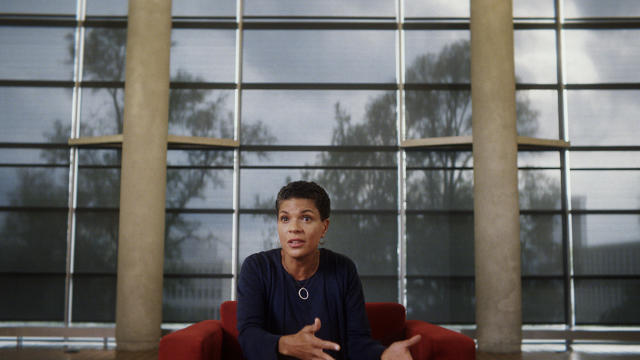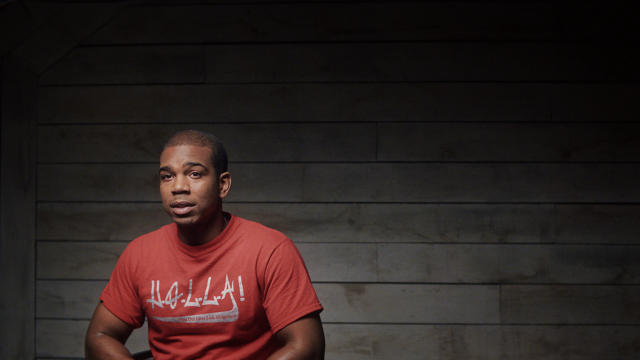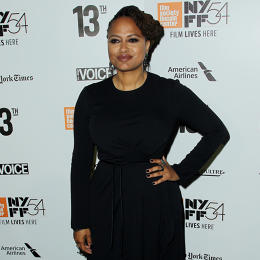Our news cycle, sadly, has no shortage of stories detailing violence against African-Americans. Every week or two seems to bring another name, another Facebook Live video, another senseless killing of another black man, woman, or child in a police encounter gone horribly wrong. With these tragedies seeming hopelessly ubiquitous, and with outrage already running high, the average Netflix user may hesitate before clicking on Ava DuVernay’s 13th, a documentary that just opened the New York Film Festival and premieres on the streaming platform tonight.

But we need 13th—desperately. If the daily news cycle reliably chronicles injustice at its extremes, it’s less adept at contextualizing these extremes. What about injustices that don’t result in blood? What if instead of being fatally shot, a man, woman, or entire community is slowly, insidiously suffocated? This less obviously dramatic, but much more far-reaching, violence against Americans of color is the true subject of 13th, which argues that slavery in the Unites States was not so much eliminated as transformed, and that its spirit persists in this country’s swollen criminal justice system.
“Police violence, that isn’t the problem in and of itself,” says one of the film’s interview subjects, Michelle Alexander, author of The New Jim Crow: Mass Incarceration in the Age of Colorblindnes, which DuVernay has cited as an influence. “[Police violence] is the reflection of a much larger, brutal system of racial and social control known as mass incarceration, which authorizes this kind of police violence.”
The film’s title comes from the Thirteenth Amendment to the United States Constitution. Widely considered a landmark in the narrative of black liberation in the U.S., the amendment’s 1865 passage was the subject of the recent Steven Spielberg film, Lincoln. The amendment declared that “Neither slavery nor involuntary servitude…shall exist within the United States.”

But what about that ellipsis? In 13th, DuVernay, who directed 2014’s Academy Award nominee for Best Picture Selma, focuses on a clause in the middle of the amendment, which abolishes slavery “except as punishment for crime.” This caveat, for DuVernay and for many of the people she interviews, is key to understanding how slavery—or at the very least, racial oppression—has continued under the guise of legality.
The statistics are well known but bear repeating. The United States accounts for only about 5% of the world’s population—and 25% of the world’s prisoners.
That fact in and of itself would be troubling, but it’s doubly so when we consider the racial makeup of our prison population, which is disproportionately black and brown. While African-Americans and Hispanics make up about a third of the U.S. population, they comprise nearly two thirds of the incarcerated population. The rates are especially high for black men, one in three of whom can expect to go to prison at some point in their life.
DuVernay’s film draws a seamless narrative line connecting forms of racial oppression from the slavery era right up to today. When the documentary moves into the past few decades, when this country’s experiment in mass incarceration began, it slows its pace to carefully lay out the details. Some of the most shocking moments—in a film full of them—are simply numbers: the steadily mounting tally of the U.S. prison population through the decades. In 1970, our prison population was under 200,000. By the year 2000, in the wake of the 1994 crime bill that Bill Clinton would apologize for much later, the prison population swelled to almost 1.4 million. It stands at 2.3 million today.

In a conference room in a Manhattan hotel this weekend, DuVernay shared with a group of journalists the process of making 13th. To achieve the film’s historical sweep, DuVernay and her editor, Spencer Averick, combed through over 1,000 hours of archival footage of racial violence. “I cried a lot making this film,” she said. “Watching a thousand hours of violent racist footage takes its toll.”
“I’m in a self-care moment right now,” she added, “where I don’t know when I’ll do this again.”

But she—or someone—may have to. After a year that began with hope, criminal justice reform has stalled. Both liberals and conservatives claim to want reform, and 13th features a new interview with Newt Gingrich, whose positions seem to more or less align, in 2016, with those of Angela Davis. But even bipartisan support for criminal justice reform has not been enough. A few naysayers were able to weaken, then scuttle, Congressional attempts this year. Last week, the editor of The Marshall Project, a website dedicated to criminal justice news, published an analysis he titled “Criminal Justice Reform: An Obituary.”
13th, in the end, may be something like a tactician’s map, a topography of systemic injustice that reformist generals may pore over with their lieutenants, studying for points of leverage. “Part of what I want 13th to do is overwhelm you,” DuVernay said. “There’s no one thing that’s gonna fix this. There’s no one thing that’s gonna fix plea bargains, and the people making money in prisons, and cops and [their] over-militarization. There’s no one solution that does that. The only way to fix it is if we all start to think differently.”
Fast Company , Read Full Story
(45)